Four UTS Entrepreneurial PhD (ePhD) candidates recently shared their research journeys at the Research Café. With the new ePhD program taking off this year, their stories are testament to the potential of this new graduate research opportunity at UTS.
Creating solutions through academic research
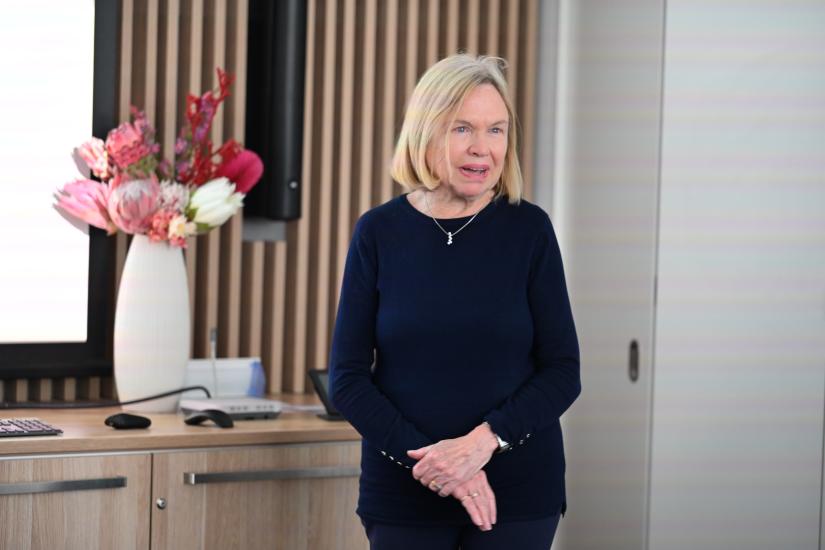
Advancing Algorithmic Law
A serial entrepreneur and startup founder, Mona Chiha is the creator of the Algorithmic Legal Framework, the world’s first ethical and eXplainable AI model designed to transform legal research and data analytics.
Joining UTS as a mature-aged student aged 35 to complete an MBA, Mona has gone on to develop the new practice of algorithmic law.
“Algorithmic law is the convergence of data science, ethics, credible legal data sources and, most importantly, human oversight,” explained Mona, adding that human oversight must always be centric to any technology created.
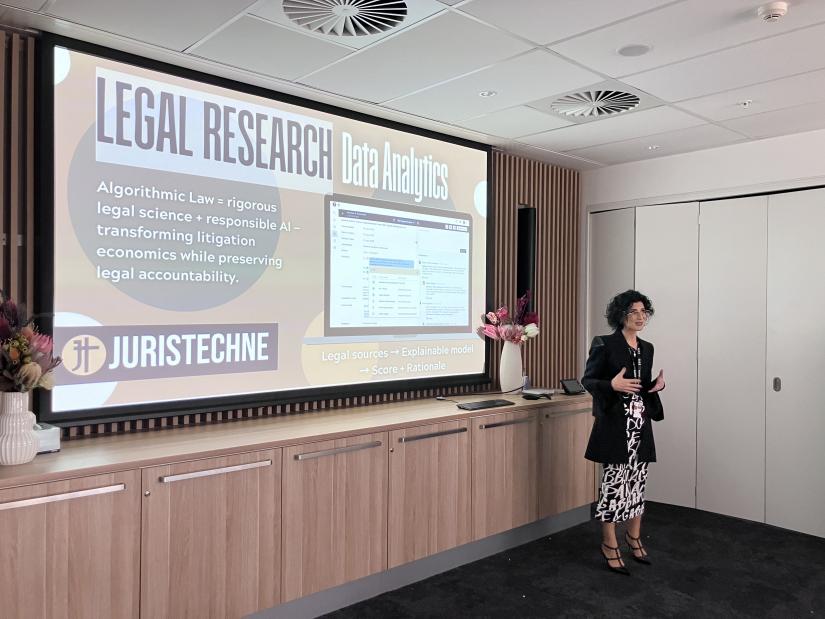
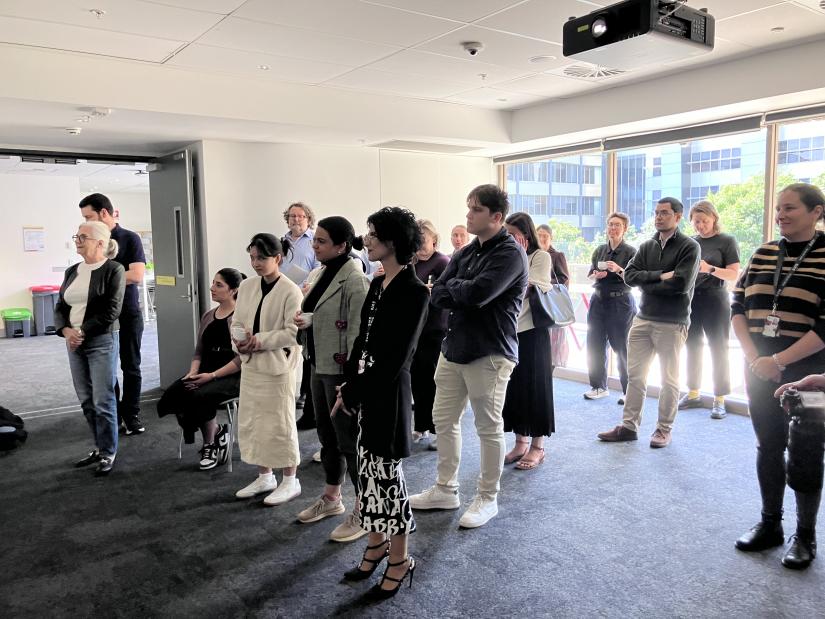
In deciding to pursue an ePhD, Mona wanted to ensure that both her research and business gained the credibility that she believes it deserves through evidence and research.
“By participating in this kind of Entrepreneurial PhD program, founders like myself have the opportunity to validate their ideas through academic rigor and peer reviewed processes.”
- Learn about more about Juristechne, LawTech AI startup.
- Learn more about Mona Chiha.
Surcharge-free bank payments for everyday commerce
Vibhu Arya has spent the past twenty years in India and Singapore, building a career in fintech with companies such as Citibank as well as nimble startups. A recipient of Australia’s Global Talent Visa, Vibhu’s ePhD research focuses on enabling instant bank payments for everyday commerce as an alternative to cards.
“Having worked in fintech for two decades, I’m interested in exploring how to give customers and businesses more choice when making instant bank payments,” he said.
Millions of people in many countries already have that choice—whether by tapping their card or phone, or by scanning a QR code for instant bank payments.
“That’s how it happens in Singapore, India, Brazil, Hong Kong and many other parts of the world. But in Australia, the UK, Europe and the US, we’re still stuck without choice. We tap our card, or use Apple Pay or Google Pay, and are then hit with a billion and a quarter dollars in annual card surcharges.”
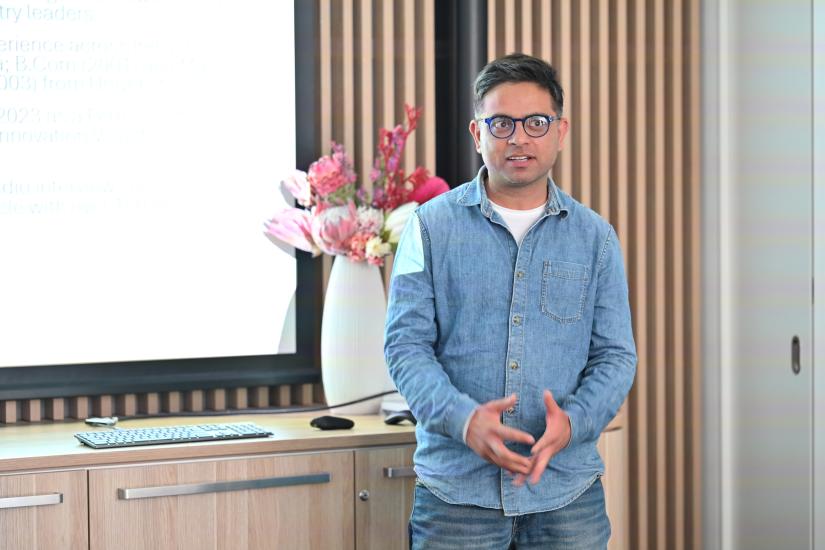
“My research is about where and how the world has choice. I’m looking at how people pay for things and transfer money, recognising that cards are just one way of paying. Why don’t we in Australia and other countries have the same choice that’s available elsewhere?”
While the costs of building the infrastructure to enable more choice are significant, Vibhu points out that in Australia a New Payments Platform already exists.
“If we can scale this platform up, it will provide real choice. And choice drives innovation and greater benefits for everyone,” he explained.
If we can scale this platform up, it will provide real choice. And choice drives innovation and greater benefits for everyone.
Just three months into his research, Vibhu has already received strong feedback on an article co-authored with his PhD supervisors, Dr Wen Helena Li and Prof Renu Agarwal MAICD of the UTS Business School and published in The Conversation about how countries might scale these systems to encourage competition and innovation. The article also sparked two radio interviews with ABC and JOY.
“Through doing an ePhD at UTS, I'm trying to bring some metrics to this madness to prove that this idea can work. With three great supervisors, I am loving the journey so far!”
- Learn more about Vibhu Arya.
Harnessing the power of positive ideas
Lynn Wood has enjoyed a diverse career, including leading entrepreneurial ventures in retail, aged care and funds management. More recently, she developed an innovation platform called IdeaSpies.
“It's all about sharing positive ideas, something I first became interested in ten years ago when I was traveling in Vancouver, and heard a guide say: ‘promote what you love rather than bash what you hate’,” Lynn explained.
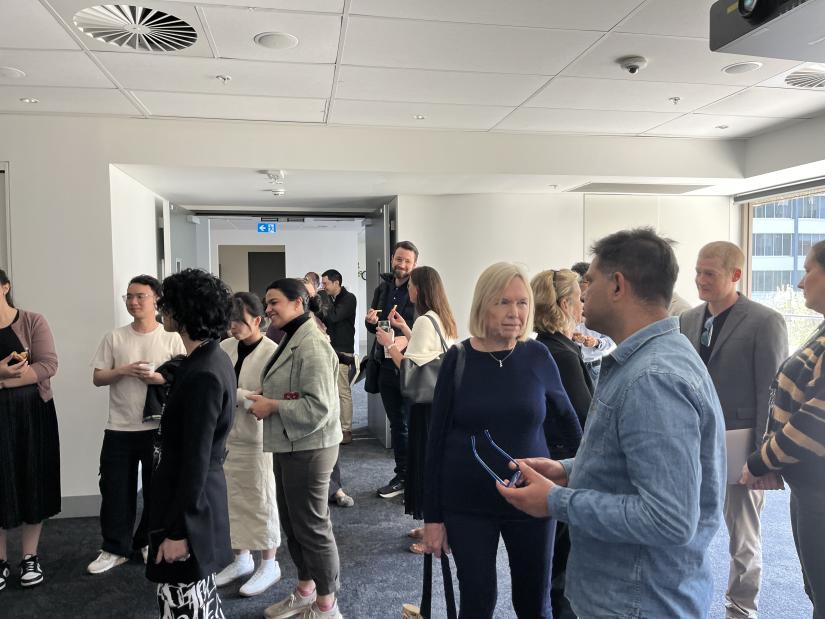
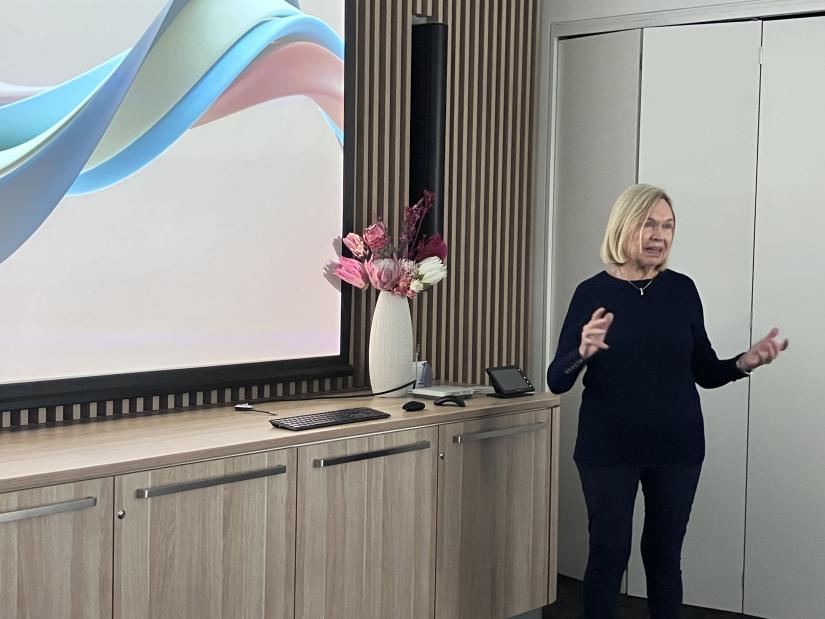
When she noticed how many positive ideas around the world were being stifled by negative news, Lynn decided that more of these positive ideas needed to be seen as they are solutions to many problems.
“Working with a friend, we thought we could build a platform that would share positive ideas, as a positive version of Facebook, and we tested the concept on Facebook,” she said.
With the help of dozens of volunteers, Lynn eventually built the online platform that showcased thousands of positive ideas across nineteen topics, with ideas, including on AI, explained simply.
While she was unable to raise the funds needed to sustain and grow the model, the passion for sharing good ideas stayed with Lynn and has become the topic of her ePhD. Meantime she suspended the platform and is keeping the IdeaSpies brand live on LinkedIn.
I’ve been going through the research context of increasing negative news. Why is it occurring? Who's benefiting from it? What harm is it causing? And looking at the psychological benefits of being alert to positive ideas.
“When I heard about the UTS Transdisciplinary School from Paulina LaRocca, I was struck by how its ethos spoke exactly to my background - crossing industries and crossing disciplines, so that’s why I decided to pursue an ePhD with UTS,” she said, adding that her co-supervisor, A/Prof Martin Bliemel, shares her belief in the immense value of disseminating positive ideas more widely. He introduced Lynn to Poppy Watson, Lecturer in Clinical Psychology, who agreed to co-supervise her PhD project.
“I’ve been going through the research context of increasing negative news. Why is it occurring? Who's benefiting from it? What harm is it causing? And looking at the psychological benefits of being alert to positive ideas.”
As Lynn continues her research, she and Martin have set up a UTS IdeaSpies Teams channel and invite contributions to share positive ideas from across the UTS community. Contribute here.
- Learn more about Lynn Wood.
Strategic workforce design for the new world of work
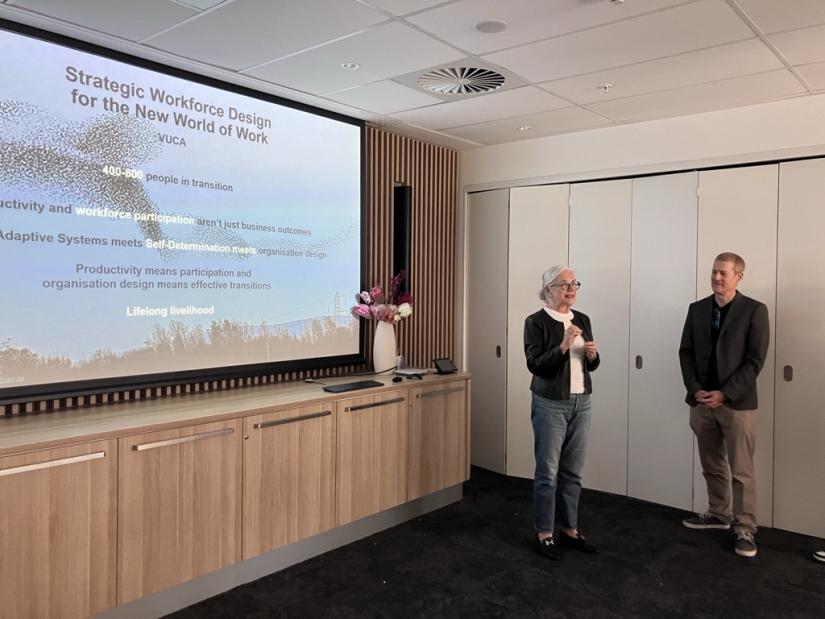
Three-time founder Anne Moore describes herself as a recidivist entrepreneur and a social scientist. A recent graduate of a psychology qualification, Anne is passionate about helping people navigate the future of their working lives.
“We're living in a world that is volatile, uncertain, complex and ambiguous. 400-800 million people will be going through work transitions in the next decade. And what's central to all of this is our capacity to remain productive,” Anne explained
“We need to increase both productivity and workplace participation. And this is not a solely a business imperative. It's an economic imperative. It's also about social stability and individual wellbeing.”
Anne describes today’s world of work as designed with industrial logic that is no longer fit for purpose.
“We work with the legacy of Roman armies – hierarchies and rigid structures. The command-and-control model doesn't equip us with the adaptability nor the movement that we need to free us up to compete and basically withstand the assault of technology and all the other changes that we're seeing amongst us.”
I want to build a platform that gives us not only agility, but also the dynamic attributes, autonomy and the emergent capacity of something that looks a bit like murmuration.
Anne’s ePhD research is supervised by Prof Jochen Schweitzer and Prof Natalia Nikolova in the UTS Business School and combines science – complex adaptive systems with social psychology and business to explore the idea of organisational design.
“I want to build a platform that gives us not only agility, but also the dynamic attributes, autonomy and the emergent capacity of something that looks a bit like murmuration.”
A murmuration is a natural phenomenon where large flocks of birds, most notably starlings, fly in complex, synchronised, and ever-changing patterns. The term comes from the low, murmur-like sound produced by thousands of wingbeats as the birds move in unison without a leader. Borrowing from living systems models, Anne believes murmurations might be our way forward.
“I'm hoping to build a model that ensures for us lifelong livelihood. A model that produces and enforces, through organisational design models, our productivity in a way that allows us to make effective transitions across our working lives.”
- Learn more about Anne Moore.
What’s next?
- Learn about the UTS Entrepreneurial PhD program
- Discover the full suite of UTS Impact PhD opportunities